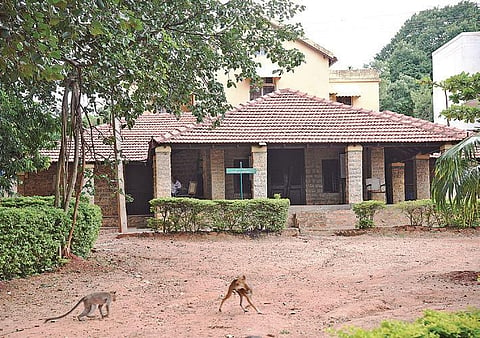

BENGALURU: As the Karnataka government and tourism department are working to transform the Devika Rani and Roerich Estate on Kanakapura Road into an eco-tourist destination, forest officials are raising red flags.
The site, part of a forest patch and an elephant corridor, poses challenges for proposed activities like yoga and other tourist ventures.
“Officials of the tourism department informed the Central Government through a presentation that the site is part of a forest. We are writing to the tourism, environment and forest department stating that the estate is situated on a forest land and is part of the elephant corridor connecting Bannerghatta National Park, Savandurga, BM Kaval Reserve Forest and further south,” a senior forest department official told The New Indian Express.
Of the 469 acres of Tataguni, 100 acres have been classified as reserve forest, with the rest falling under deemed forests, as documented in the August 17, 1916 Mysore Gazette.
While a portion of this land was handed over to the Roerich family in 1953 and later proposed as a Biodiversity Heritage Park in 2020, officials argue that its ecological significance make it unsuitable for tourism.
“The estate is also home to leopards, sloth bears, otters, and frequent elephant movements, which have led to rising human-animal conflicts,” the official said.
The tourism department, however, is moving ahead with a Rs 99.17 crore Detailed Project Report (DPR) to develop the site into an eco-tourism and cultural hub. Union Minister Piyush Goyal listed Tataguni Estate among 40 projects in 23 states to be developed under a central initiative.